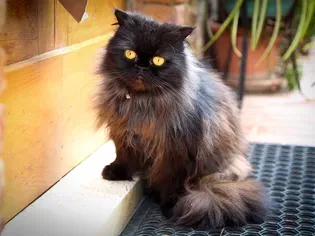Are Ant Traps Safe for Cats?
Updated on 04/26/24

Are Ant Traps Safe for Cats?
As responsible cat owners, we must ensure our feline companions' health and safety. One common household item that often raises concerns is ant traps. These traps contain toxic substances to eliminate ants, but can they pose a risk to our beloved pets?
Potential Hazards of Ant Traps for Cats
1. Ingestion:
Cats are curious and playful creatures, and they may be tempted to chew on or swallow ant traps. Ingesting these traps can lead to poisoning due to the presence of insecticides. Symptoms may include vomiting, diarrhea, excessive thirst, lethargy, and seizures.
2. External Exposure:
If an ant trap is broken or spilled, the toxic chemicals can come into contact with your cat's skin or eyes. This can cause irritation, inflammation, and even chemical burns in severe cases.
Examples:
* In 2019, a cat named Mittens was hospitalized after ingesting an ant trap containing boric acid. The toxic substance caused severe vomiting, diarrhea, and kidney damage.
* A kitten named Luna suffered corneal burns when she rubbed her eyes after coming into contact with a spilled ant trap. The chemicals in the trap caused inflammation and pain.
Types of Ant Traps and Their Risks
Different types of ant traps employ various active ingredients, each posing its own level of risk to cats:
1. Sugar-Based Ant Traps:
These use a sugary substance to attract ants, but they usually do not contain harmful insecticides. However, if ingested in large quantities, they can cause gastrointestinal upset.
2. Insecticidal Ant Traps:
These traps contain insecticides such as boric acid, borax, or fipronil. These substances are highly toxic to cats and can cause serious poisoning.
3. Electronic Ant Traps:
These traps use electric shocks to kill ants. While they do not contain insecticides, they can still be dangerous for cats if they come into contact with the electrical components.
How to Keep Cats Safe from Ant Traps
To protect your cat from ant traps, follow these guidelines:
1. Choose Safe Ant Trap Types:
Opt for sugar-based traps or pet-friendly insecticidal traps that specifically state they are safe for cats.
2. Place Traps Strategically:
Keep ant traps out of reach of cats, in areas where they are unlikely to encounter them.
3. Securely Close Traps:
Ensure that ant traps are closed tightly and cannot be easily opened by cats.
4. Supervise Your Cat:
When using ant traps, monitor your cat's behavior to prevent any potential exposure or ingestion.
5. Keep Ant Traps Out of Reach of Children:
As ant traps can also be harmful to children, store them in a secure place where they cannot be accessed.
What to Do if Your Cat Gets into Ant Traps
If you suspect your cat has come into contact with an ant trap, take the following steps:
1. Remove the Trap:
Carefully remove the ant trap from your cat's reach to prevent further exposure.
2. Call Your Veterinarian:
Contact your veterinarian immediately to report the incident and seek their advice.
3. Induce Vomiting (If Ingested):
If your cat has ingested the ant trap, your veterinarian may instruct you on how to induce vomiting to remove the toxic substance.
4. Monitor Your Cat:
Observe your cat for any symptoms of poisoning and contact your veterinarian promptly if anything unusual occurs.
Conclusion
Ant traps can pose a hazard to cats if not used responsibly. Ingesting or coming into contact with toxic ant traps can lead to serious health consequences. By following the safety guidelines outlined in this article, you can protect your furry friend from these potential dangers and keep your home ant-free without compromising your cat's health. Remember, prevention is always better than cure. Keep your cats safe and consult with your veterinarian if you have any concerns or questions about ant traps and their potential risks.
Explore More Pets

Cat Behavior Problems
How to Stop Aggression in Kittens

Long-Haired Cat Breeds
Siberian Cat: Breed Profile, Characteristics, & Care

Cat Behavior Problems
How to Stop Kittens From Scratching and Biting

Long-Haired Cat Breeds
Turkish Angora: Cat Breed Profile, Characteristics & Care

Basic Training
How to Socialize Your Kitten

Short-Haired Cat Breeds
Cute Pictures & Facts About Calico Cats & Kittens

Litter Box Training
Training Your Kitten to Use the Litter Box

Long-Haired Cat Breeds
10 Fun Facts About White Cats